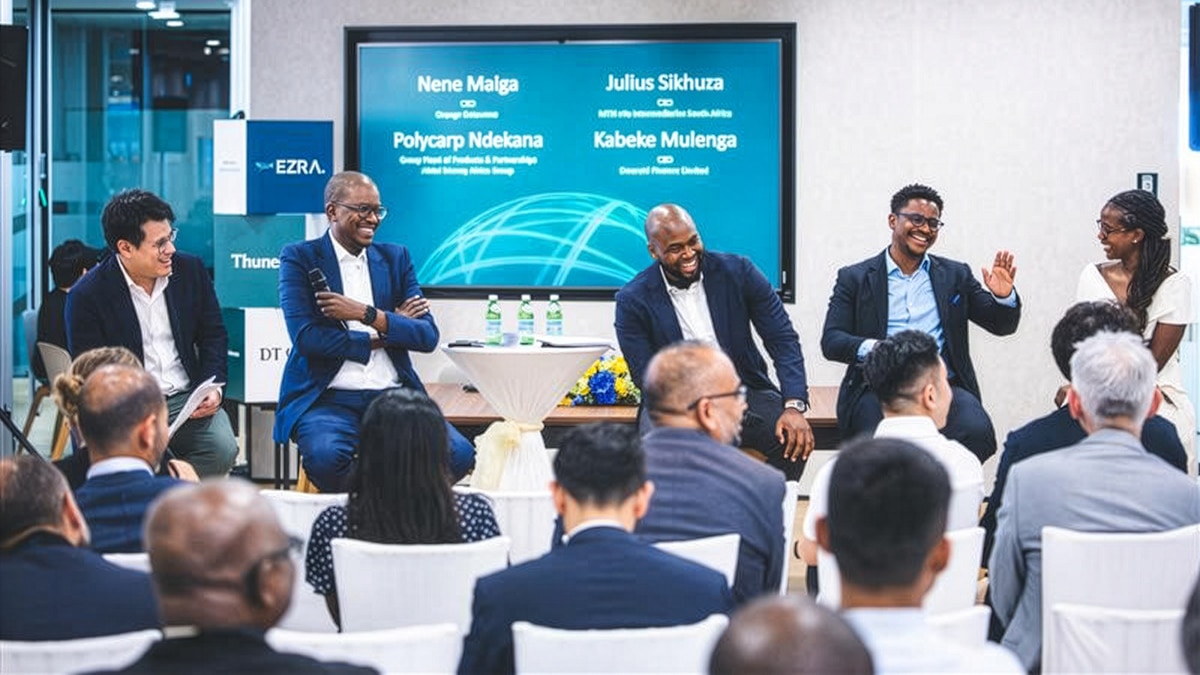Mobile money began as a simple solution: sending value from one wallet to another. In much of Africa, it has since become the foundation of a digital financial revolution.
At the TransferTo partner event of the Africa Singapore Business Forum 2025, held in Singapore in August, Low Yaoyang, Managing Director at Ezra, moderated a panel with business leaders from aYo Intermediaries, Airtel Money, Orange Money, and Emerald Finance Group. With the theme of “From Mobile Money to Connected Ecosystems: Scaling Financial Inclusion and Growth”, the panellists discussed Africa’s market shift from financial transactions to ecosystems, and how these ecosystems can reshape inclusion, resilience, and cross-border growth.
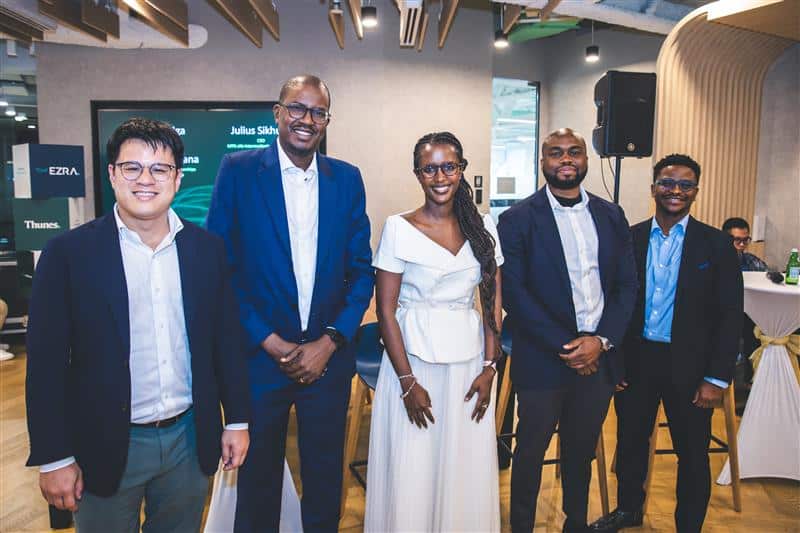
The conversation revealed a common view: Africa’s financial sector is moving past simple money transfers. The next wave is about widening access to credit and savings, providing insurance to protect livelihoods, and enabling small businesses to trade more easily across borders.
Here are five insights that stood out.
From transactions to ecosystems
The first wave of mobile money services in Africa was transactional – cash-in, cash-out, and peer-to-peer transfers. Providers innovated within the sector when they began using data to design broader offerings such as loans, savings, and insurance, triggering a new wave of growth.
Partnerships are vital for building rich ecosystems. Fintechs like Ezra provide proprietary credit scoring and machine learning algorithms that work with other players, such as Emerald Finance Limited, to assess affordability and manage risk dynamically. This capability makes it possible to extend credit responsibly, even in markets with limited formal credit histories.
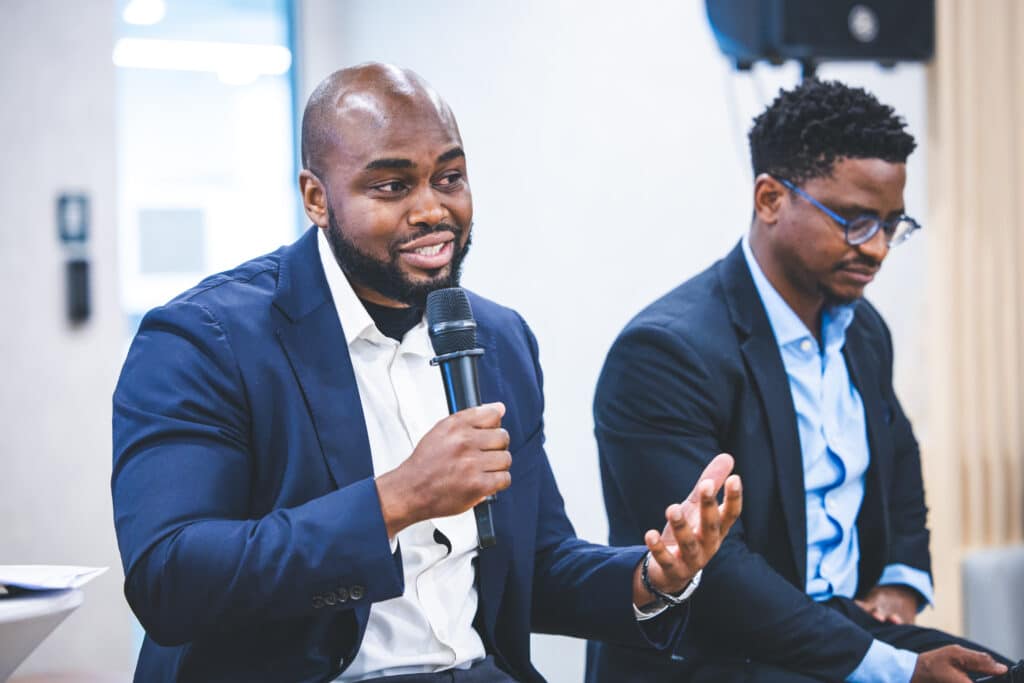
“The ecosystem is everything,” Kabeke Mulenga, CEO of Emerald Finance Group, noted. “With Ezra, collecting data and scoring customers enables us to broaden our scope and enable services like loans.” For instance, consistent patterns such as airtime top-ups or timely bill payments can signal reliability. New scoring models can turn these behaviours into credit profiles, enabling access to microloans or overdrafts that traditional banks would not provide.
Designing for dignity: What inclusion really means
Financial inclusion is often measured in percentages – of unbanked adults, loan penetration, and digital adoption. However, the panel revealed that inclusion also carries human and emotional weight.

Nene Maiga, CEO at Orange Money Botswana, said that her customers described how access to a digital wallet gave them dignity: the ability to shop, pay, and receive wages like anyone else. “When I visited a village, a farmer came up to me and said that the credit card made him feel normal. He could behave like everyone else and felt included,” said Nene. Adding on, Yaoyang related what a taxi driver in Botswana said to him when he was showing him around. The driver explained to him that when a fare was paid directly into his digital wallet, it felt like he earned it as a professional.
The benefits are clear. Inclusion is not just about functionality; it is about belonging. To achieve this, providers must simplify the customer journey, embed financial services into everyday platforms, and target all eligible adults – rural or urban, formal or informal workers.
Connecting Africa through interoperability
If ecosystems are to reach their full potential, they must connect across borders. Today, intra-African trade accounts for only about 15% of total trade, compared to over 70% in the European Union and more than 55% in Asia.
The panel agreed that the next step to unlock Africa’s growth potential is for companies to work with one another—and with regulators—to build frameworks that enable cross-border trade and inclusion. Wallets and payment systems are technically capable of connecting, but the right rules and policies must be in place to ensure seamless flows. “Regulation is key,” Polycarp Ndekana, Group Head of Products and Partnerships at Airtel Money, said. “With the right frameworks, interoperability can support growth across the continent.”
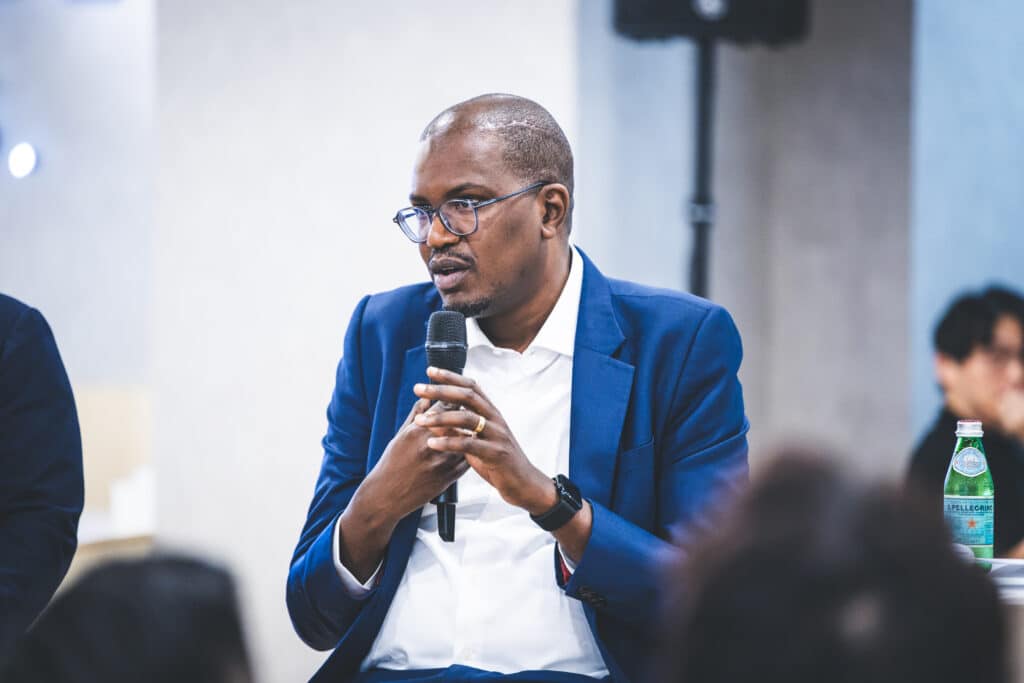
Interoperability offers increased speed, convenience and cost-efficiency. With financial systems that connect seamlessly with each other, landlocked countries, like Botswana, can trade more efficiently with neighbours, help micro, small, and medium businesses settle payments across borders, and lower costs for merchants and consumers.
Insurance: The missing link in financial inclusion
While loans dominate many conversations about financial access, the panel emphasised that insurance is just as critical. It helps households and businesses withstand economic shocks, protect assets, and plan for the future. Yet, insurance remains underpenetrated in Africa.
Unlocking its potential requires strong foundations: advanced KYC systems, data sharing among competitors, and regulatory testbeds for innovation. In particular, data sharing would help insurers better understand the needs of the insured. The insights would unlock lower pricing and better product design for customers.
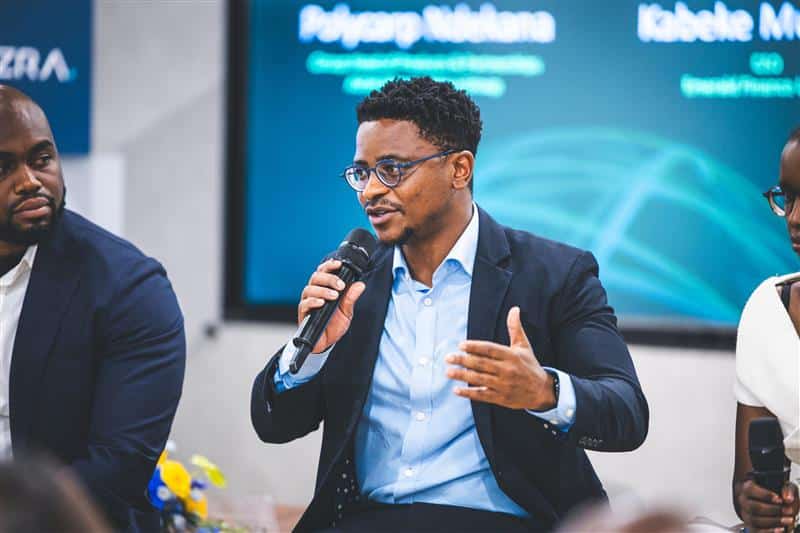
Hence, insurers must rise above brand and margin battles to focus on value for customers. “This is not about revenue,” Julius Sikhuza, CEO at aYo Intermediaries South Africa, explained. “It’s about adding value to people’s lives. The margins will follow once the right infrastructure is in place”.
Machine learning and blockchain are the next waves in innovation
Looking ahead, proprietary credit scoring and machine learning models will continue to play a key role in financial access. They enable lenders to refine risk assessment, develop incremental loan products, and safeguard both customers and providers. Other innovations – blockchain for cross-border payments and agent networks for last-mile reach – are also reshaping the landscape.
Technology alone is not enough. Fintechs and insurers must learn how to harness it to deliver faster and more convenient services. Africa is the world’s youngest continent, with a median age of approximately 19. This generation demands seamless, modern digital experiences and companies have to find a way to provide them. As Nene put it, “Never bring subpar solutions to Africa. Customers will leave for alternatives overnight.”
Trust and speed of innovation will be crucial. Companies have to work together to adapt quickly, design with local realities in mind, and embed financial services into daily life to serve customers in the Africa of tomorrow.
Empowering growth, enabling dignity
Across the learnings shared by the panel, these key insights stood out: Mobile money wallets opened the door. Ecosystems will carry the continent forward. Inclusion is also not only about moving money; it is about improving lives, giving people agency, dignity, and trust.
The shift from wallets to ecosystems shows how digital finance can evolve into a foundation for resilience and growth. The task ahead is clear: build systems that are not only scalable but also sustainable, ensuring Africa’s next generation inherits financial tools that match their ambitions.
To learn more about how Ezra is partnering up to build Africa’s financial ecosystem, contact us today and join us in our mission to achieve Equal Access and Endless Possibilities.
